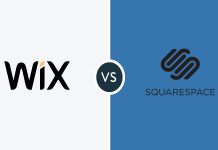Table of Contents
Many developers today say that Rust is the easiest programming language. Some programmers have come to love it for its ease of writing and the absence of pain points that are found in other coding tools. Therefore, the developer provides himself with the speed of writing code using Rust.
Is this popular programming language really so lightweight, making it possible to create productive web applications, or can Rust be originally personifying a reliable and “hardware” application? You will find out why rust is so popular programming language after reading the article.
Until now, developers of programs and web applications have been arguing and will argue about the performance and reliability of dynamic languages compared to static ones. Look at the evolution of features like TypeScript or Python’s type hinting features. These innovations mean that programmers have become aware of the problems that come with dynamic code entry in today’s large codebases. However, static languages also restrict the behavior and data checked by the compiler, which leads to misunderstandings.
What is Rust?
Rust is a general-purpose programming language tailored for the development of high-load systems. It is used to write web applications, browser engines, blockchains and other complex platforms that process requests from millions of users. Let’s analyze its main features.
- compilation. Before running, the Rust code is immediately translated into machine language – that is, it turns into a set of zeros and ones. In this Rust differs, for example, from JavaScript , where the code is first run through the interpreter, and only then goes to the processor. The trick to compiling is that it makes programs run faster and consume less memory.
- Multiparadigm. A programming paradigm defines the style in which developers write code. Rust supports several paradigms at once: functional, declarative and object-oriented programming. Most often, companies use the latter approach, but Rust can work in any mode.
- High level of abstraction. Commands in Rust are simple English words: Input, let, and so on. Therefore, the code on it is easy to read and check. At the same time, the language supports the use of some low-level tools for finer work with hardware.
Advantages
Here’s what companies and developers value the language for:
- speed and security. As we wrote above, Rust programs are fast and break only in hopeless situations.
- Static typing. In Rust, variable type checking occurs at the compilation stage – this is a plus for the reliability of the language.
- C++ Compatibility. In Rust programs, you can easily call blocks of code from C and C++, and vice versa.
- Caring compiler. If an error occurs in the program, the compiler will tell you what went wrong and give advice on how to fix it.
- cross-platform. Rust runs on almost any device, from computers and smartphones to ATMs and smartwatches.
- multithreading. Rust programs are able to perform several operations at the same time, effectively using the processor’s power.
Rust also has disadvantages – there are not many of them, but let’s analyze them too:
- Limited OOP support. For example, it is impossible to implement full-fledged inheritance of code and classes without crutches.
- Frequent updates. The syntax of Rust changes with each new version, so developers have to constantly relearn. On the other hand, the language ends up being safer and easier to use.
What is Rust used for?
Since Rust knows how to get the most out of hardware, highly loaded parts of applications and services are often written on it. For example, here is what major international and Russian IT companies develop with its help:
- Mozilla is the Quantum engine that powers the Mozilla Firefox browser;
- Coursera – components of the online learning platform;
- Microsoft – low-level elements of Windows OS;
- Rambler – server-side logic of web applications;
- “VKontakte” – tools for building and managing source code.
Areas where this programming language is widely used
- Cryptocurrencies and blockchain. In order for blockchains to be able to make secure transactions between millions of different devices, you need fast and stable code – and programming in Rust just allows you to do this. For example, it runs one of the most popular clients for the Ethereum platform
- OS. In theory, Rust can be used to write a full-fledged OS from scratch with drivers, a file manager, a browser, and other stuffing. In practice, few people want to compete with Apple and Microsoft, so there are not so many successful projects so far.
- websites and web applications. Due to the fact that Rust is resistant to loads, it can be used to develop server-side site logic. For example, the Dropbox cloud service rewrote its file storage system on it – and these are tens of thousands of server machines, where gigabytes of new data are constantly uploaded.
- Browser Engines. It’s not for nothing that Rust was invented in Mozilla – the language was originally sharpened specifically for browser development. It has features for quickly rendering web pages in multithreaded mode – you can split the site load into several tasks and distribute them between processor cores.
- machine learning. Rust supports a lot of libraries for working with big data : training algorithms, data visualization, linear algebra, working with vectors, image processing, you name it. If in the future you see yourself in Data Science, take a closer look at Rust.
Is Rust suitable for a beginner?
Despite the love of programmers for Rust, this language has a rather high barrier to entry. To get started, you need to study for a long time: master the language itself, parallelism, working with memory, and other complex concepts. Therefore, the answer to the question will depend on your experience and skills.
If you are just starting to learn programming , it is better to look for something more popular and easy to learn. For example, JavaScript is now one of the most popular languages in Russia. The entire visible part of the Internet is written on it: interfaces, buttons, sliders and other beauty. If you want to write code and immediately see the result, you won’t find a better option.
But if you already know how to program in C++ or Java and someone suggests you change your profile, it makes sense to think about switching. Rust is a fast, secure, and compact language, great for developing complex projects and systems. With it, you will be insured against random errors and memory leaks.









